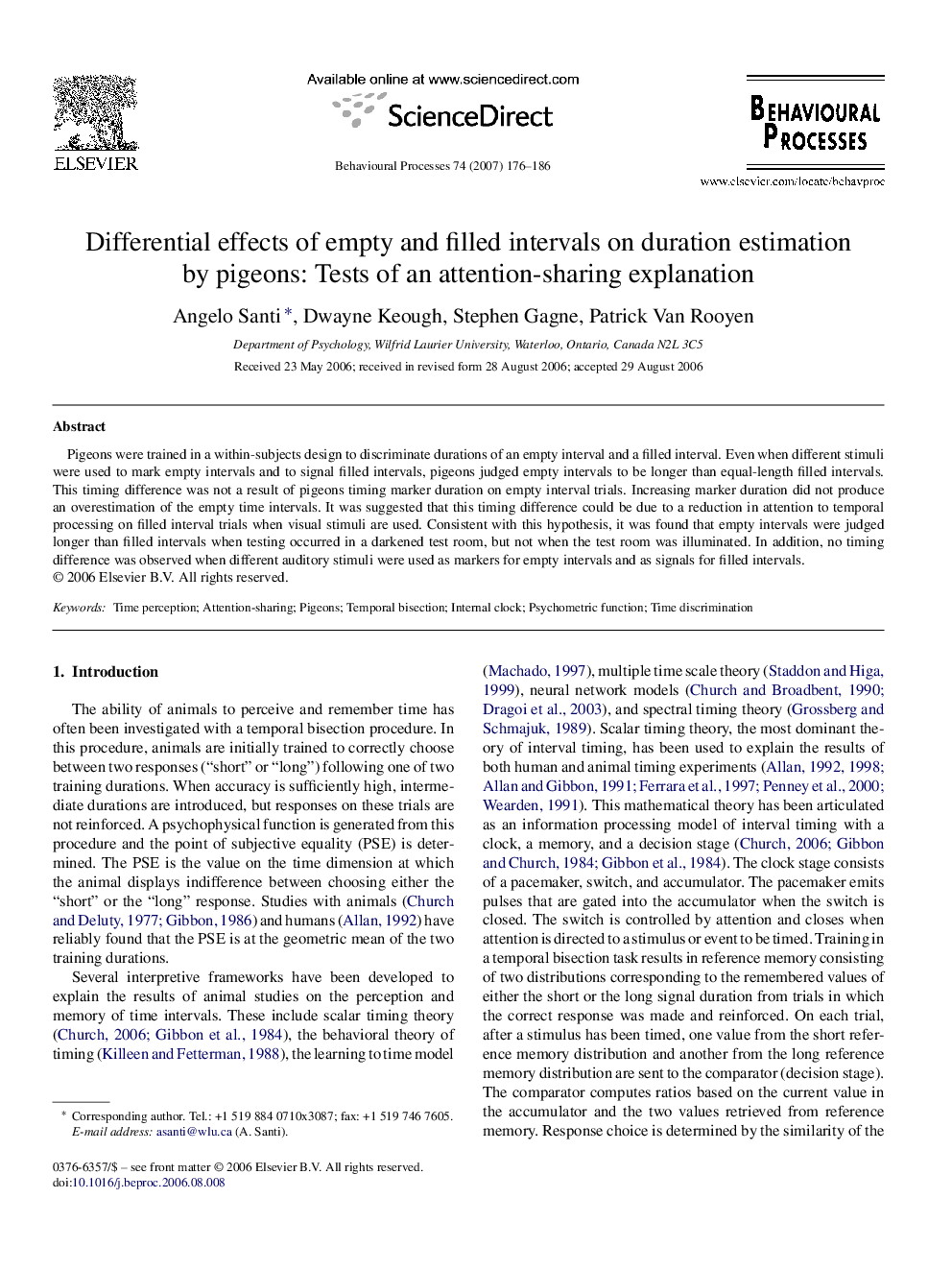| Article ID | Journal | Published Year | Pages | File Type |
|---|---|---|---|---|
| 2427765 | Behavioural Processes | 2007 | 11 Pages |
Abstract
Pigeons were trained in a within-subjects design to discriminate durations of an empty interval and a filled interval. Even when different stimuli were used to mark empty intervals and to signal filled intervals, pigeons judged empty intervals to be longer than equal-length filled intervals. This timing difference was not a result of pigeons timing marker duration on empty interval trials. Increasing marker duration did not produce an overestimation of the empty time intervals. It was suggested that this timing difference could be due to a reduction in attention to temporal processing on filled interval trials when visual stimuli are used. Consistent with this hypothesis, it was found that empty intervals were judged longer than filled intervals when testing occurred in a darkened test room, but not when the test room was illuminated. In addition, no timing difference was observed when different auditory stimuli were used as markers for empty intervals and as signals for filled intervals.
Keywords
Related Topics
Life Sciences
Agricultural and Biological Sciences
Animal Science and Zoology
Authors
Angelo Santi, Dwayne Keough, Stephen Gagne, Patrick Van Rooyen,
